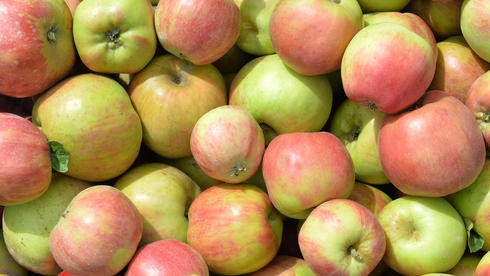samedi, 23 août 2014
Europe: Falling Victim to US Pressure

Europe: Falling Victim to US Pressure
|
It’s evident that the European Union is not ready for this turn of events. Instead of bowing to Western sanctions Russia responds in kind imposing the sanctions of its own. Only now Europeans appear to understand that the economies of Russia and the European Union are closely intertwined and that obediently dancing to the tune of the United States leads nowhere. Western media outlets are inundated with assessments of how effective sanctions and countersanctions are. There are people who have directly invested into Russian economy and those who make profit thanks to stable relationship with Russia. The punitive measures may make reconsider the whole pattern of making investments. Russia has badly hit the European agriculture. The measure has direct impact and indirect implications. The direct affect is related to the ban on Polish fruits; dairy from Finland and the Baltic States and fish from Norway …It entails implications. For instance, French farmers may not be happy to see Polish farmers expand into European market trying to compensate the losses inflicted by Russia and squeezing out other suppliers. It may reshape the whole structure of production and consumption in the European Union and result in market saturation to strike all the producers at once. That’s the way it can be with poultry too. Ireland is dissatisfied. Estonia may lose around 0, 3% of GDP. Lithuanian farmers may lose 927 million euros. Latvia may lose 55 million euros. The European Commission formed a working group to assess the consequences of Russian food embargo against the European Union. But the Commission cannot really lend a helping hand to farmers. The European agricultural sector rightly demands compensations for the losses inflicted by political steps that were not economically motivated. The European Agricultural Fund for Rural Development, created to tackle the situations when agricultural production cannot be sold due to political reasons, is not of great help with the funds that do not exceed 400 million euros while only three countries of the European Union out of 28 – Germany, the Netherlands and Spain - face the losses of around 1, 5 billion euros. Actually the European Union says frankly that it has no money for compensations and the political decisions of dubious nature will be brought into life at the expense of producers. True, some European producers managed to get at least symbolic compensations from Brussels; on August 12 it was announced that the European Union will buy out 10% of peaches and nectarines allocating 30 million euros for the purpose. US businessmen also have something to worry about. New sanctions against Russia will speed decline in auto sales at the time the demand for cars is sliding down. European manufacturers had been looking to Russia to double sales and profits to make up for increasingly tough competition at home. Now their hopes appear to be dashed. The European business is looking for the ways to get around the ban and stay in Russia. One of the options is getting to Russian market through Belorussia and Kazakhstan. The producers of Norwegian salmon are looking for the ways around through Chile. Until now Brussels has not given much attention to the protests of business community. It just makes lukewarm remarks. But it will have to tackle the issue seriously. First, no matter all the sanctions imposed, the Russia’s GDP is not going down, it continues to grow. The pace is not very impressive but still it’s going up. According to Russian Federal States Statistics Service, the GDP grew in the second quarter of the year by 0, 8 % and 0, 9 % in the first quarter. Why impose any sanctions at all, if the only thing they result in is the reduction of European profits? Second, the European business finds it hard to understand the logic of Brussels succumbing to the United States while the sanctions imposed by America are very selective. Washington prefers Europe to shoulder the major burden of losses. On August 9 US oil giant ExxonMobil started drilling in Russian Arctic Ocean no matter its Russian partner Rosneft was under sanctions. This example of double standard approach on the part of the one who dragged the European Union into the sanctions adventure looks more like betrayal. No doubt Europe is going to scrutinize more closely the economic initiatives coming from the United States, first of all the US-proposed Transatlantic Free Trade Area (TAFTA). Becoming part of TAFTA the European business, weakened by Russian sanctions, could find itself trapped. If Europe does not change the sanctions policy towards Russia soon it may result in political complications. Big business may revolt to entail wide discontent among grassroots. The loss of profit directly affects working places. From Brussels’ point of view these difficulties could be overcome at the expense of labor immigrants though people will hardly accept this approach. There is one more problem that Brussels will have to inevitably face - the strengthening of Euroscepticism and anti-US sentiments. Finally, the United Stated exerted pressure to make Europe impose sanctions against Russia. It will result in further schism inside the European Union which is had been divided enough even before the sanctions were introduced. |
| Tags: European Union Russia US |
00:05 Publié dans Actualité, Affaires européennes, Géopolitique | Lien permanent | Commentaires (0) | Tags : politique internationale, sanctions européennes contre la russie, géopolitique, économie, guerre économique, russie, europe, affaires européennes, états-unis, boycott, embargo |  |
|  del.icio.us |
del.icio.us |  |
|  Digg |
Digg | ![]() Facebook
Facebook


